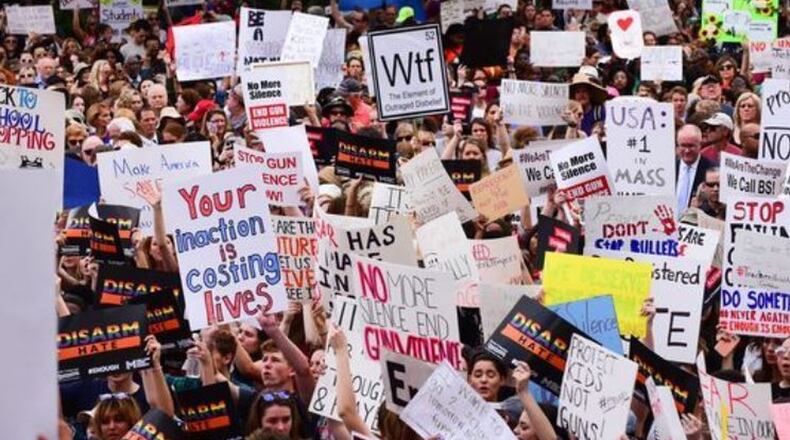When U.S. House Speaker Paul Ryan cited laws that prevent the mentally ill from obtaining guns, he alluded primarily to a 1968 federal law.
The federal Gun Control Act, passed after the 1968 assassinations of Robert F. Kennedy and Martin Luther King Jr., prohibits anyone "who has been adjudicated as a mental defective or has been committed to any mental institution" from possessing a firearm.
That’s a small portion of people with mental illness. And it doesn’t account for people who are more likely to be dangerous but have not been adjudicated or committed.
Besides the federal law, Ryan's office cited similar state laws on gun possession and mental illness, but the federal law is primary here.
About 45 million U.S. adults live with mental illness, including 10 million who have a serious mental illness, according to the federal National Institute of Mental Health. "Serious mental illness" refers to "a mental, behavioral, or emotional disorder resulting in serious functional impairment, which substantially interferes with or limits one or more major life activities."
Relatively few are violent: People with mental illness are much more likely to be a victim of a violent crime, not a perpetrator, according to studies. Only 4 percent of violence toward others in American society is attributable to mental illness, according to John Monahan, a professor of law, psychology and psychiatry at the University of Virginia.
"The existing body of research on mass shooters suggests that a history of civil commitment or legal adjudication" is practically unheard of among perpetrators of mass homicide, according to "Gun Violence and Mental Illness," a 2016 book published by the American Psychiatric Association.
(Experts told the New York Times that if Nikolas Cruz, who shot and killed 17 people last month at a Florida high school, had undergone a full psychiatric evaluation, it might have resulted in a temporary commitment at best, but not full-time institutionalization. One who has studied mass killers said, "Most of these shooters are angry, antisocial individuals you cannot spot in advance, and even if you could, you don't have the right to institutionalize them.")
Meanwhile, the federal law itself is over-inclusive and under-inclusive, experts told us.
Many mentally ill people it prohibits from having a gun do not pose a danger to others, said Pace University law professor and mental disability law expert Linda Fentiman. But she said the law does not cover people who could pose more danger, such as some schizophrenics who are also substance abusers and have committed violent acts, if they haven't been adjudicated or committed.
Before we close, a footnote on one gun-restriction change that has received notice since the Florida school shooting:
In February 2017, Trump and Congress rescinded an executive order signed two months earlier by President Barack Obama. It was intended to prohibit an estimated 75,000 people who have mental illness and get Social Security disability benefits from buying guns. The American Civil Liberties Union opposed the order, saying it "advances and reinforces the harmful stereotype that people with mental disabilities, a vast and diverse group of citizens, are violent."
Our rating
A federal law and some state laws do prohibit people adjudicated as “mentally defective” or involuntarily committed to a mental health facility from possessing a gun. But experts say that standard does not account for a much larger set of people who might be dangerous but have not been diagnosed with, or treated for, a serious mental illness.
For a statement that is partially accurate but ignores critical facts that would give a different impression, our rating is Half True.
We “have laws on the books designed to prevent people with mental illnesses from getting firearms.”
— Rep. Paul Ryan, R-Wis., on Thursday, Feb. 15, 2018 in a briefing with reporters
About the Author
The Latest
Featured


